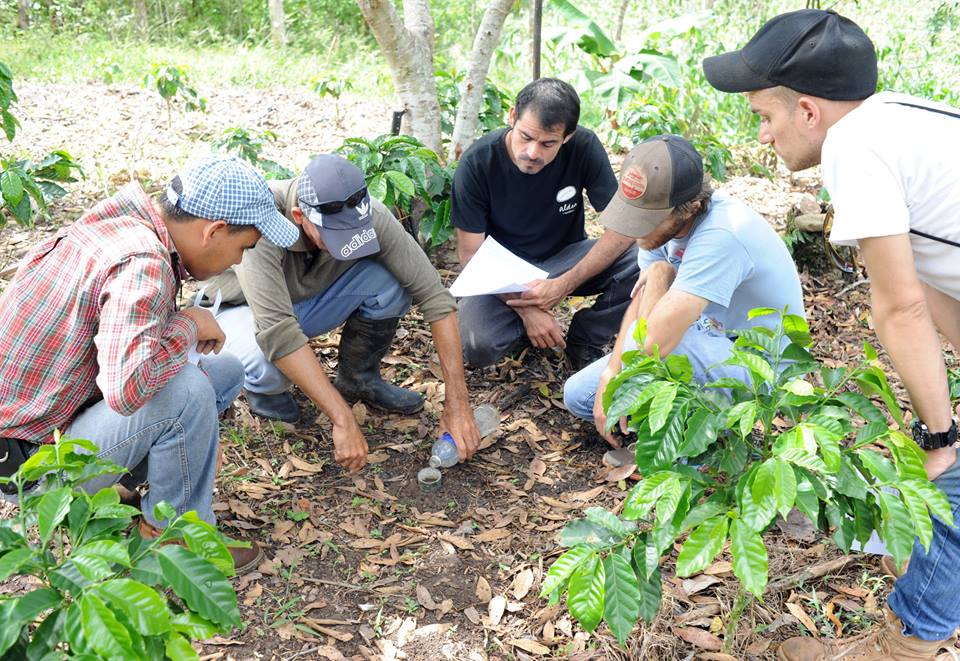
By Jeremy Martin
We all know the old adage, act locally, think globally. But what happens when you want that locality to be half a world away from your birthplace?
That’s a question Patrick Hughes and Andrew Boyd set out to answer when they formed Unión Microfinanza in La Unión, Honduras. Oh, and they also wanted to solve the enormous issue with area farmers not having the means to support themselves and their families, too.
œPeople have been promised the moon hundreds of times over by different organizations, by governments, by whomever it may be, and have been let down a lot,” says Patrick. “For us, a really important principle of ours is that we work very hard not to promise to do anything unless we know were going to do it, Hughes said.

What Patrick and Andrew, both graduates of the University of Michigan, and their team have done is set up an organization that grants microloans in the form of goods such as seed spreaders, fertilizer, machetes, and other tools necessary for farmers to do their jobs. What they don’t do is give out monetary loans.
œOne of the risks you run is that people won’t use the money for what it is for,” says Patrick. “We looked at that and looked at the fact that we were able to get discounts on a lot of the goods we were buying because of volume.”
Unión Microfinanza also runs a training and education program whose aim is to instruct farmers on proper methods of planting, cultivation, and land management, and partners with area villages to upgrade infrastructure and community facilities.
œWe work for community level development,” he says. “We’ve done deep water wells. Right now, were installing a water filtration system. We’ve done community gardens, latrines ”that sort of thing.”
Since the very beginning, Unión Microfinanza has worked to support local coffee farmers, but until recently, the organization was a passive partner in the greater coffee industry. Patrick and Andrew’s operation, however, has begun to dip its proverbial foot in the waters of international trade, shipping, and coffee buying, all in the hopes of raising awareness for Honduran coffee, garnering larger returns for the farmers and crafting a product for consumers that is both high quality and affordable.
œOne of the first things farmers said when we asked what other services they were looking for, was a better a margin for coffee, Hughes explains. œBased on that, we started buying coffee directly from farmers and shipping it to the U.S. We sell about half of it as green coffee, and half of it we sell roasted under the name of Aldea Coffee. The whole idea is to buy better coffee and pay higher prices for better quality, promoting transparency between the farmers and the people buying the coffee.


So far, the response both from farmers and from buyers has been mixed, but Hughes is confident that with more time in the industry and more time learning from their mistakes, Unión Microfananza and Aldea Coffee can make a positive impact on La Unión, Honduras and the surrounding communities.
œSo far, we’ve been learning as we go,” Patrick continues. “This year we brought in a little over 32,000 pounds, and a month-and-a-half later, we have two or three thousands pounds left to sell. The quality has improved drastically over the past three years. We’re seeing that there is starting to be a culture of quality amongst farmers that a few years ago didn’t exist.”
A major recent addition to the program is a process center where the company is doing experimentation on different ways to process and improve coffee.
Of course, none of this would have been possible if Patrick and Andrew had been unable to gain the trust of the farmers and community members they work with.
œIt took two or three years until we really had people’s trust,” says Patrick. “We have a Honduran staff, we have as many Hondurans as Americans. They are the ones leading all the interactions with the farmers we work with.”
Funding has also been an issue. So far, all of Unión Microfinanza’s capital has come in the form of small American loans and donations, a business model which is neither long lasting nor self sustaining. As such, Patrick and Andrew are seeking ways in which to bring in more money so they can continue to do the work they have grown to love.
œCertainly, that is one of the limiting factors,” Patrick says, “having the capital to continue growing.”
ABOUT THE AUTHOR
Jeremy Martin is a freelance writer and photographer who has reported on coffee, craft beer, college sports, and business for a variety of publications over the past six years. A veteran of the café industry and graduate of Western Michigan University, Jeremy lives in Seattle where can often be found making sandwiches from whatever is left in the fridge and cracking wise for the amusement of his adoring wife Amanda.


